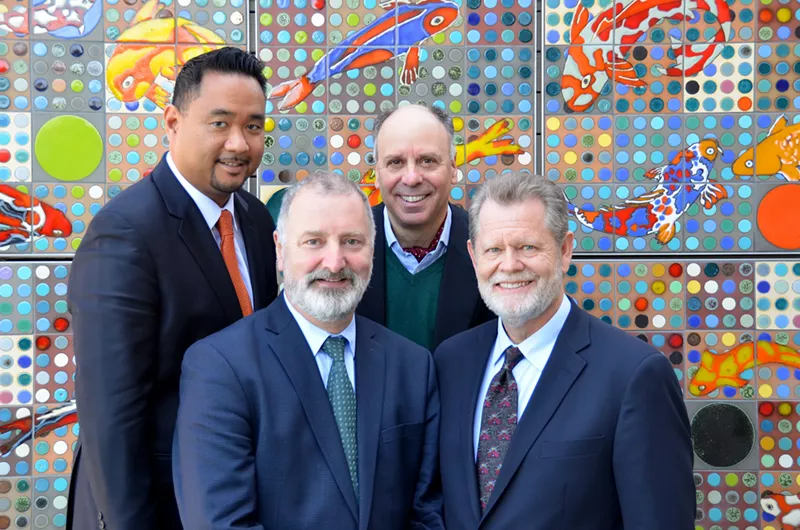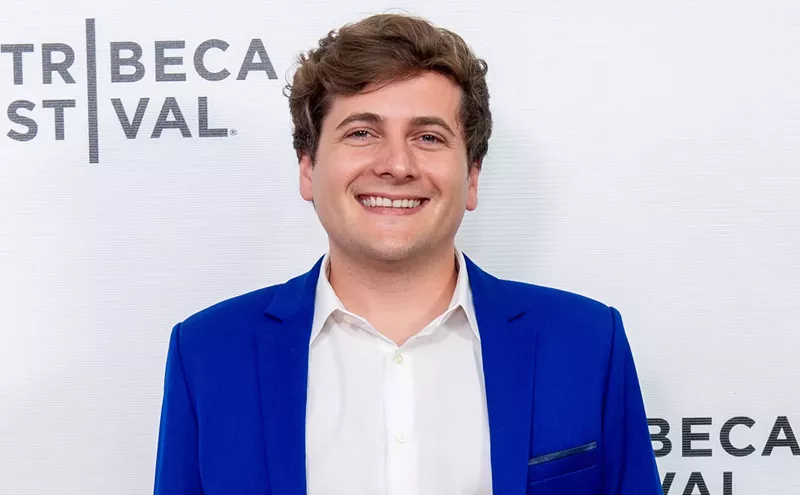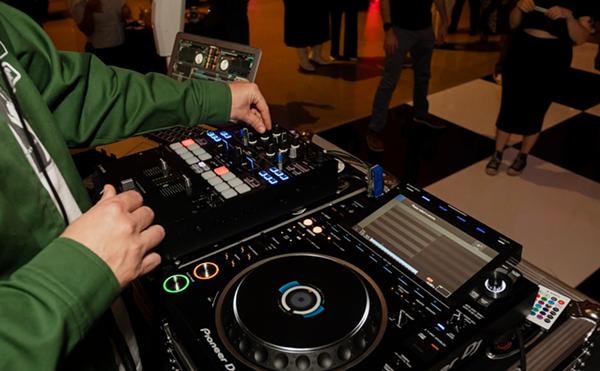The Alexander String Quartet has been together for 38 years — long enough that the quartet’s four members claim that while performing, they breathe in unison.
In that time, the San Francisco-based ensemble has become a California institution, known for its rich-sound, contrast-heavy approach, low turnover and affinity for big-scaled romantic chamber music. But one thing the Alexander Quartet hasn’t done in almost a decade is perform in North Texas. The hiatus ends at 7:30 p.m. Saturday in downtown Dallas’ Moody Performance Hall.
Saturday’s program is an epic night: three quintets with added piano, all of them about a half-hour in length. First up is Robert Schumann’s piano quintet, which more or less invented the genre back in 1842. It’s a piece that bursts with joy, vivacity and high energy. These five players recorded it together on an album in 2013, a performance that this author reviewed at the time as “exuberantly cheerful.”
Up next is a brand-new work by Samuel Carl Adams, a 33-year-old Californian whose father, John Adams, is one of America’s leading composers. But the younger Adams doesn’t seem concerned about the comparison. And Alexander Walsh-Wilson, the quartet’s cellist, suggests that the new piece lives up to the legacy of the Schumann classic that precedes it.
“Starting with this piece that people are so familiar with and love, it’s such a curtain riser that you kind of wonder how it’s going to reflect on what follows,” Walsh-Wilson explains. “It really does set up great anticipation for the new piece.” And he’s a big fan of Adams’ piece, titled Quintet with Pillars: “It’s a surprising work and it’s completely original. There’s nothing like it.”
The Alexander Quartet commissioned the new work to celebrate a decade of collaborations with pianist Joyce Yang, who will play it with them in Dallas. It’s a bit of a homecoming for Yang, who took home the silver medal in 2005’s Van Cliburn International Piano Competition down the road in Fort Worth. She still makes regular appearances in Funkytown at venues like the Kimbell Art Museum.
Samuel Adams’ quintet is built in two big parts, separated and bookended by the so-called “pillars,” which help bring the whole thing together.
“The first part is very atmospheric, very spiritual, probing and mysterious, and we’ve discovered that the audiences so far have maybe felt somewhat disoriented, but not in a scary or disturbing way,” Walsh-Wilson says. Listeners have told the composer that the first part reminds them of a desert landscape, which, Adams says, “has to do with a sense of spaciousness and a slower rate of change.”
Part of the landscape comes from the discreet use of electronics.
“You’re almost not aware of them until they’re a part of a soundscape,” Walsh-Wilson says. “It’s almost as if you’re suspended.”
Then, after the passage of another “pillar,” it’s on to the second part, which Walsh-Wilson describes as “a hoedown, a real wild ride. It’s really exhilarating to play. It could be scary if you consider how difficult it is to play, but it’s a lot of fun.”
The composer explains, “I wanted to create a different kind of experience for the listener, where one witnesses the construction of the music in real time. Effectively, I worked backward, creating the second part first and then creating the first part out of the ‘shards’ of the second part.” He compares the structure of the quintet to a circle, and hopes that listeners will enjoy hearing how the music returns to where it began.
This Saturday’s finale is the famously folksy piano quintet by Czech romantic Antonin Dvorak. The Alexander Quartet and Yang recently recorded the piece for an upcoming album — their third together. The quartet has recorded a total of over two dozen CDs in its history.
Asking the Alexander Quartet how they’ve stuck together 38 years is, it turns out, a lot like asking an older couple for secrets to a successful marriage. Their top tip: Be good at fighting.
“We’re very efficient at fighting,” Walsh-Wilson explains, only half-kidding. “We flare up for 30 seconds. First we fight, and then we have a beer.”
“If you don’t care enough about it to fight about it, then it’s not going to be that interesting." – Alexander Walsh-Wilson
tweet this
He elaborates on why that wisdom is no joke.
“If you don’t care enough about it to fight about it, then it’s not going to be that interesting," he says. "One thing we have learned is you’ve gotta keep everybody engaged. If we don’t care enough to work it out, then you have to worry about what that signifies. If you say, ‘Whatever you guys want,’ that means that someone’s disengaged.
“We learned a long time ago that you can’t really make decisions by a strict vote. If anybody in the quartet is not going to be happy, then you’ve just got to postpone the decision, because there’s no point in anybody being unhappy with a decision that you’ve made collectively. We don’t make enough money and life is not long enough to be unhappy.”
With 38 years of performance, the quartet says, comes a great deal of experience and chemistry. They have found ways to “talk” during concerts, about the quality of the acoustic or the alertness of the audience, via glances or physical gestures or even altered breathing. (Yes, they breathe together.)
“We’re very suggestible,” Walsh-Wilson says. “That’s part of why we prepare so much. If it’s feeling like it’s really connecting, we’ll understand that intuitively. We can understand when an audience is really with you.”
That ability to feel the audience and adapt to it helps bring spontaneity to the quartet’s playing, and makes sure that after all these years, they aren’t ever repeating themselves.
Another tip for enlivening a four-decade-old musical partnership: Invite new people into the relationship to spice things up.
“We’re looking for someone who’s going to come into the chemistry of the four of us and stimulate us and shake us up,” Walsh-Wilson says. “Push us off our center of gravity just for a minute.”
That’s exactly what Yang has done in her collaborations with the quartet — although even she’s been playing with them for 10 years now.
“She is an amazing collaborative pianist,” Walsh-Wilson says. “We just love playing together.”
Adams shares in the admiration for Yang.
“She’s very demonstrative,” he explains. “You can almost see the structure and emotional arc of a piece simply by watching her.”
He admits that the piano part in his quintet is fiendishly difficult. Between the challenging part and Yang’s demonstrative nature, audience eyes may be on the piano. But the Alexander String Quartet, with their decades of experience before the public, will be watching the crowd right back.














